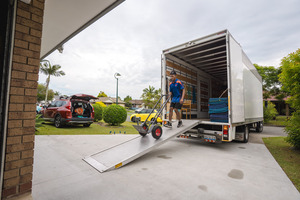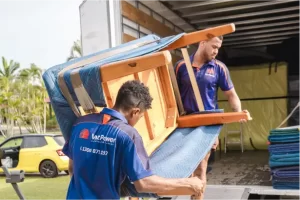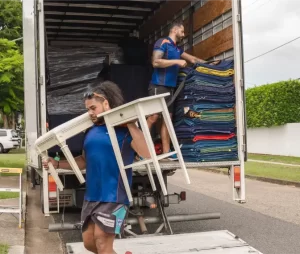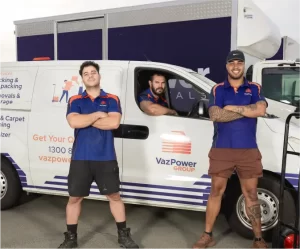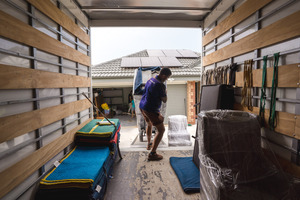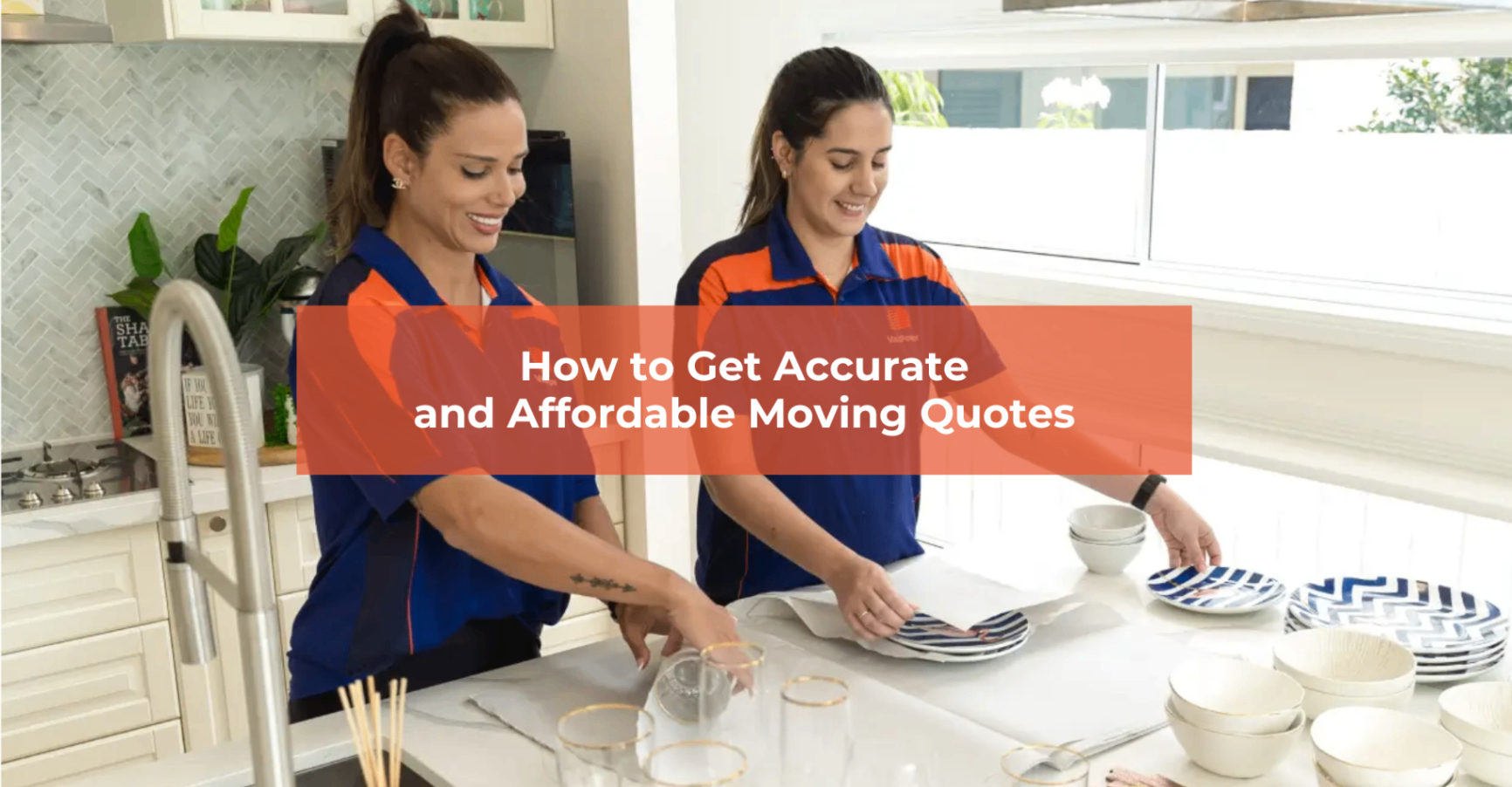
Getting a moving quote that does not include extra charges and take all your money can feel hard. But you don’t have to feel lost. The key is to know what to ask for, and how to read what you get from moving companies. Here is how you can get the moving quote you need, at a price that works for you, without any surprises.
Online tools for moving quote comparison make things simple. You enter the main details about your move, including your email. This includes where you are moving from, where you need to go, your moving date, and what you will be moving. These moving sites then get quotes from several moving companies. You see them lined up to compare side by side. Many times, they show you the services and fees as well. This makes it easy for you to look at each option, see what you will get for your money, and pick the moving quote that suits your needs and budget best.
Understanding What Makes Up a Moving Quote
To start, it’s good to know what goes into a moving quote in the moving industry. Movers often look at a few things. They think about the size of your move, like how many things you want them to move. They also ask about the long distance from your old home to the new place. The moving quote may get higher if you have things that need special care, like breakable items.
For the best moving quote, tell the movers about everything that needs to be moved. The more you say up front, the better they can give you the right price. Don’t forget about things in the garden or a piano you have in the garage. These may change the cost of your moving, so it’s good to say it all before they start.
Another thing to think about is what kind of move you have. Is it a local move or a long-distance move? A local move is often charged by the hour. A long-distance move can be priced by the weight of what you own, or by how far it has to go. If you know these points, it helps you see how they work out your quote. This way, you can find the best way to get the best deal.
Comparing Multiple Quotes
To find a good moving company that does not cost too much, you should get quotes from a few places. But keep this in mind. Some moving companies may give you a low price at first, but later the bill gets big. A company might add additional charges or fees that were not on the first quote. So, it’s a good idea to ask about every cost now. Ask if there will be charges for things like fuel, using stairs, or moving on weekends. When you know the prices before you agree, you will not be surprised the day you move.
It is a good idea to ask if the company gives you a binding or non-binding estimate. A binding estimate means the price will stay the same if you do not add more items. A non-binding estimate can change depending on the final weight of your things. Understanding these estimates is the first step if you want to plan your budget better; going with a binding estimate is often a good choice.
Evaluating the True Cost
To be honest, the cheapest price is not always the best when you want to find a mover from reputable companies. Make sure you look at what is included in the price. One company might give you packing materials for free. Another company could charge extra for them. Also, read reviews from other reputable companies and people. If a mover is known for being late or not careful, even a cheap rate may not be worth it. You could end up with more trouble than expected.
Look out for hidden costs when you are moving. Make sure to ask about the price and see if there are any extra fees. Some moving companies may show you a good price but can add more costs for heavy things, staircase, or taking your furniture apart and putting it back together. It is important to clear up these things before moving day, so you do not get any surprises.
Onsite Estimates for Accuracy
A good way to get the most accurate quote is to ask for an in-home estimate. You can get an estimate over the phone or online, but having someone see what you need moved helps a lot. When they look at everything in person, there is less guesswork. This makes it more likely that you will get a more accurate quote that matches the hourly rate you will pay in the end.
During an in-home estimate in Victoria, the representative will check the volume of items you want to move. He or she will also ask about any special needs. This is a good time to point out things, like furniture with a strange shape or stairs that could be hard to use. An in-home visit helps make sure there are no surprises on moving day. It can help with planning and costs, so you feel ready.
If you want to quickly compare multiple moving quotes in Australia before arranging an onsite estimate, you can use online comparison websites that gather quotes from different moving companies. These platforms allow you to easily review various options and prices, helping you make an informed decision before finalizing your choice.
What to Prepare Before Requesting Your Quote
Before you get a moving quote, you need the right details. A clear moving date is good to have, even if you don’t know it for sure yet, because the price and what’s offered can change depending on the time. Make sure you get your starting address and where you want to move to. This helps movers plan better. Say what kind of place you are leaving. It can be a small flat or a big house. The kind of place changes what the movers need to bring for you.
Give a simple list of main things you own, including your belongings such as furniture and any kitchen or home appliances. This lets the movers pick the right size of truck and know how many people will be there to help. A good moving quote needs these details to be accurate.
To summarize, here are some key points to prepare:
- Your Moving Date: A guess of when you want to move helps us set up a plan.
- Origin and Destination Addresses: We need both because the moving team uses them to figure out the right path.
- Type of Property: Tells us how many trucks and staff we need for your move.
- Inventory Overview: A simple list of big items helps us know what the moving job will be like.
By doing these things, you can make the whole process easier. You will get a more accurate quote from your movers.
Questions to Ask Your Mover
Finally, do not feel afraid to ask questions. If there is anything in the quote that you do not get, just say so. A good mover wants you to know what you will pay for. If things are clear from the start, your move will go much better.
Some questions you might want to ask include:
- Are there any extra costs that I will need to pay when I move?
- What insurance coverage comes with the move? Can I buy more insurance coverage if I need it?
- Is this quote final or can it change?
- What happens if my things end up taking more space or weighing more than what you first said?
- Is the quote locked in, or can it change?
- What if my things use up more room or are heavier than first guessed?
The answers to these questions will help you see how movers are different from each other. It will help you know what you can expect.
Packing Smart to Save Money
One way to cut down on your moving costs is to do as much packing on your own as you can. Movers do offer full packing services, but they will charge extra for this. If you pack your own things, especially small items that do not break easily such as clothes, books, and kitchenware, you will save a good amount of money.
To make packing simple, be sure to start ahead of time. Go through your home one room at a time. Label each box with both the things inside, including your tv, and the room it is for. This will help when you unload everything. It also makes unpacking quicker, which is good if you pay by the hour. This way, you save both time and money.
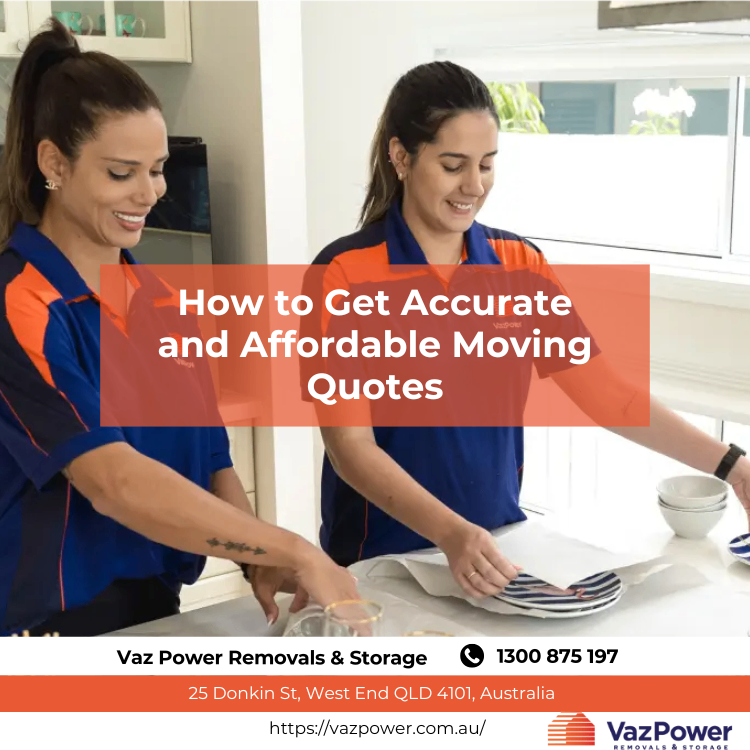
Declutter Before You Move
Another simple way to lower your moving quote in Brisbane is to clean out your things before the removalist quotes come in. When you have less to move, you will pay less. Go through your stuff and pick out what you need for your new home. You can give away things you do not use anymore or have a garage sale. This helps you save money on moving and makes it easier to feel good in your new home, without too much stuff in the way.
What Happens After You Request a Moving Quote
After you send in your request for a moving quote, there are some important things that come next to make sure the estimate fits your needs. A relocation expert with years of experience goes over your details to check what the next move will need. If some parts are not clear, or your moving has special needs, like dealing with breakable things or steps that need extra care, they may reach out to ask you questions. This helps to give you a better moving quote for your next move.
In some cases, the moving company might suggest a site check or a virtual look at the place. This can happen for bigger or harder moves. It helps the company get what type of items you have and see the layout of your home. After this, you will get a transparent moving company quotes made just for you. It will show you what services the moving will cover and how much you need to pay.
It is important to keep talking with the moving company. If something changes, like your moving date or what you need moved, let them know. This helps, especially if you have narrow hallways. They will change your price so it fits what you need. When you keep them updated, you always know what is happening. This makes your moving day go well.
Next Steps in the Moving Quote Process
Having the right details ready can make it much easier to get an accurate moving quote in Melbourne. You should know the type of items you want to move, the number of rooms in your home, and things that might be hard, like narrow hallways or big furniture that may need to come apart. When you talk about your move, be ready to say the number of rooms again and talk about any additional services you may want, such as full packing services. This way, the quote will cover everything. If you do all this, you get a better quote and more peace of mind for your move to your new home.
Types of Moving Services You Can Get Quotes For
When you want a moving quote, you should first know what type of help you need from a furniture removals company. There are different kinds of moving services, including local removalists for nearby relocations. Some help you with local moves, some are for interstate moves, and some are for office moving. A few even help with things like moving a piano or a pool table. If you understand these choices, it will be easier for you to pick the service that fits what you need.
Local moves usually mean you are moving your things within the same city or state. The cost for this is often by the hour. But, interstate moves, for example when you move from a bedroom house to a place far away, are very different. These are priced based on the volume of items or sometimes by the weight. If you need to move an office or have any other special request, such as a DIY move, be sure to let the company know from the start. This is important so they can bring any special tools or plan for what you need.
If you know what type of moving services you need, you will get quotes that match what you are looking for. This helps to be sure the prices you get are right for the best option of moving services you want.
Home Removals, Furniture Removals, Interstate Moves
When you want quotes for moving in Sydney, you need to know the different types of house removals. House removals usually mean moving all things from a home. This can include packing your things, loading them, moving them, and then unpacking when you get to the new place. The service often covers moving things like all your normal furniture and even big items like appliances.
On the other hand, AFRA furniture removals are all about moving your furniture. These jobs may need special tools or skills. This helps make sure your furniture is safe, even if it needs furniture disassembly before the move. If there is any large or fragile piece, like pianos or old treasures, let the movers know when you ask for prices. This way, they will give these items extra care and follow the right ways to handle them.
Finally, interstate moves happen when you take your things from one state to another. These moves can be more tricky than local moves. You may need to plan for the logistics, the costs, and the time it will take. When you talk with the movers, tell them if it is an interstate move that requires compliance with federal motor carrier regulations. This helps you get quotes that show everything you need for your move. This way, you know what to expect when it’s time to move from one state to another.
Useful Tips and Resources for Your Move
When you get ready for your house move, it is good to use tips and tools to make the moving process easier for you. Start by making a checklist. Write down all the things you have to do. This can include cleaning out your old home and settling into your new place. A good plan like this helps you make sure you do not miss anything during your move.
Also, you can use tools on the internet like moving calculators or packing guides to help you plan your move. These help you figure out any additional services you might need. The tools show you how much time you could need for packing, providing the most accurate estimate based on your situation. They also give you a price estimate.
Finally, do not feel like you have to do everything alone. You can use community resources or join social media groups to get advice about moving or to find good local professional removalists. Talking with people who have moved recently can give you helpful ideas and tips, especially if you’re in a last minute situation. This help can make your moving day easier. If you keep things organized and know what to expect, you can make your moving time go well, feel calm, and get the help you need from others.
Moving Checklist and Box Size Guide
A good way to make the moving process easy is to write down a moving checklist. This list helps you keep track of all tasks you need to do before, during, and after moving. These are some important things you may want to add to the list:
- Declutter: Go through all your things. Choose what to keep, give away, or throw out.
- Gather Supplies: Get boxes, tape, and other packing things early.
- Label Boxes: Write what is in each box and which room it should go in.
- Notify Change of Address: Tell the right people and services about your new address.
Get to know the sizes of boxes when packing for your new home. Use small boxes for heavy things like books. Pick big boxes for lighter stuff like blankets. When you understand what each box size is for, it helps you pack better and makes moving into your new home easier.
If you follow a clear checklist and use boxes that are the right size, you can make moving feel better. This helps keep things in order. It also allows you to work faster and makes the time feel less stressful.
Final Thoughts
Getting a good moving quote that is clear and not too expensive comes from being open, careful, and aware of timing. You have to take some time to get the right details, ensuring you consider every step of your move. Ask important questions. Compare what’s given to make sure you look at the same things from each team you get quotes from. By doing all this, your moving process will likely go well. You get less trouble and are not stuck with surprises when you move.
Remember, moving does not have to feel like a bad dream. A little bit of planning can go a long way. If you pick the right moving company, you can help make things easy and get some peace of mind. It is good to read up on your choices and stay in the know as you get ready, especially by checking reviews on platforms like Google. When you do that, you will be in your new home soon. You can feel good there and you may not get any big surprises when you see the final bill.
Frequently Asked Questions
What Factors Affect Moving Quotes?
When seeking accurate and affordable moving quotes, consider factors like distance, the volume of belongings, and additional services needed. Research multiple moving companies, read reviews, and request estimates to find the best deal. Comparing quotes ensures you make an informed decision, saving you money and stress during your move.
How Can I Ensure I Get the Most Accurate Quote?
To obtain accurate and affordable moving quotes, start by researching multiple moving companies. Provide detailed information about your move, including distance, size of the load, and any special requirements. Request in-home estimates when possible, as this allows movers to give precise quotes tailored to your specific needs.
What’s the Cheapest Way to Move House?
The cheapest way to move house typically involves a DIY approach, using your own vehicle or renting a truck. Additionally, consider off-peak moving times and compare quotes from various moving companies. Packing your items yourself can also significantly reduce costs while ensuring an efficient moving process.












